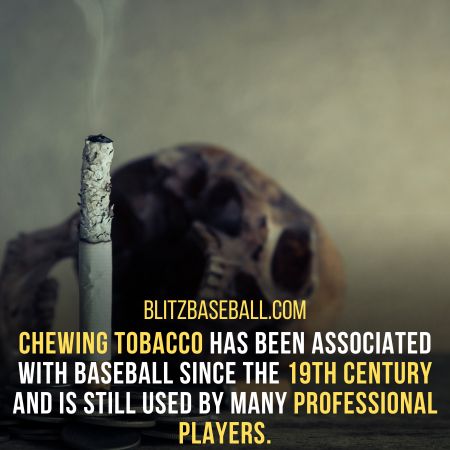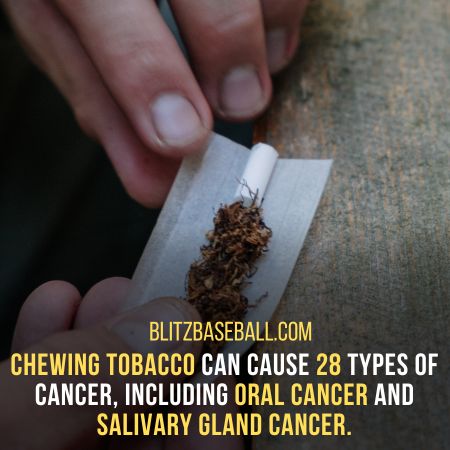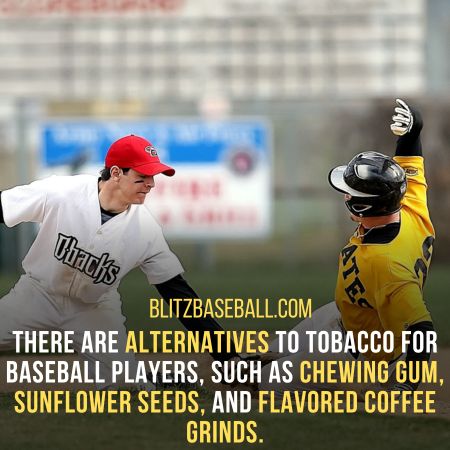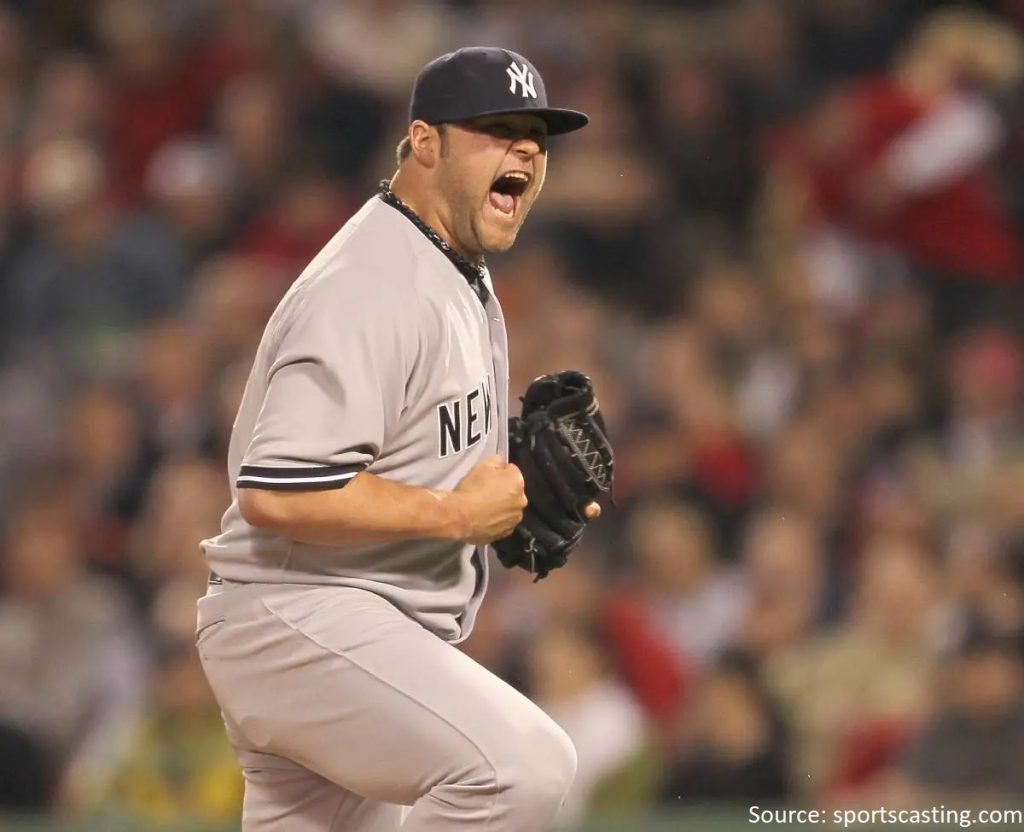You may wonder that why do baseball players chew tobacco. Chewing tobacco has long been a prevalent practice among baseball players, serving as a means to keep their mouths moist and their gloves supple on dusty fields.
Originating as a supposedly safer substitute for smoking, chewing tobacco has since been found to be equally hazardous, leading to various forms of cancer, heart disease, and respiratory complications.
Despite the well-documented health risks associated with its use, many professional baseball players persist in this habit, although it is now prohibited for new players. Tragically, numerous baseball legends, such as Bill Tuttle, Babe Ruth, and Tony Gwynn, have succumbed to tobacco-related cancers.
Consequently, efforts to ban tobacco in baseball have intensified, resulting in a decline in its prevalence over time. While Major League Baseball (MLB) regulations strive to minimize tobacco use, completely eradicating it may necessitate collective bargaining.
In the interim, players are encouraged to adopt safer alternatives like chewing gum, sunflower seeds, and coffee grinds to maintain moisture and occupy their mouths.
Key Takeaways
- Chewing tobacco has been associated with baseball since the 19th century and is still used by many professional players.
- Chewing tobacco helps keep players’ mouths moist on dusty fields and stimulates saliva production.
- Chewing tobacco can cause 28 types of cancer, including oral cancer and salivary gland cancer.
- There are alternatives to tobacco for baseball players, such as chewing gum, sunflower seeds, and flavored coffee grinds.
Reasons Why Do Baseball Players Chew Tobacco
Chewing tobacco has been historically favored by baseball players due to its benefits in keeping their mouths moist and softening their gloves. The use of chewing tobacco in baseball dates back to the 19th century and has become deeply ingrained in the sport’s cultural traditions.
Baseball players often find themselves playing on dusty fields, which can lead to dry mouths and discomfort.
Chewing tobacco helps stimulate saliva production, providing relief and moisture. Additionally, the act of chewing tobacco can soften and break in a new glove, making it easier to use.

Over time, chewing tobacco became deeply intertwined with the culture of baseball, serving as a symbol of toughness and tradition.
However, despite its historical significance and cultural traditions, it is important to acknowledge the harmful health consequences associated with tobacco use.
Health Risks
Tobacco use has been linked to a range of serious health risks, including various types of cancer, cardiovascular disease, and respiratory problems. Its long-term effects on the body can be devastating. Here are some key health risks associated with tobacco use:
-
Increased risk of oral cancer, including cancers of the mouth, throat, and salivary glands.
-
Higher likelihood of developing lung cancer and other respiratory conditions such as chronic bronchitis and emphysema.
-
Elevated risk of heart disease, including heart attacks and stroke.
-
Impaired immune system function, making individuals more susceptible to infections.

Prevention methods are crucial in reducing the health risks associated with tobacco use. These include:
-
Education and awareness campaigns to inform individuals about the dangers of tobacco.
-
Implementing and enforcing comprehensive tobacco control policies, including bans on tobacco use in public places.
-
Offering support and resources for individuals who want to quit, such as counseling and nicotine replacement therapies.
-
Promoting healthy lifestyles and alternatives to tobacco, such as regular exercise and the use of nicotine-free chewing gum or sunflower seeds.
By adopting these prevention methods, individuals can minimize their risk of experiencing the detrimental long-term effects of tobacco use.
Safer Alternatives
In order to address the health risks associated with tobacco use, it is important to explore alternative options that promote oral health and overall well-being.
Safer alternatives to chewing tobacco have gained popularity among baseball players due to their potential benefits. Chewing gum is one such alternative that helps keep players’ mouths moist and provides a similar action to spitting. Additionally, high-quality gum offers a range of flavors and experiences.
Sunflower seeds have also emerged as a highly recommended alternative, as they not only keep the mouth busy but also boost the immune system, maintain a healthy heart, and provide energy.
Grinds, which are flavored coffee grinds, offer a safe alternative for moistening the mouth.
By embracing these safer alternatives, baseball players can reduce their risk of developing the numerous health consequences associated with tobacco use while still addressing their need for oral stimulation.

Current Regulations
Current regulations surrounding the use of tobacco in baseball aim to reduce its prevalence among players and promote a healthier environment within the sport. In an effort to discourage tobacco use, Major League Baseball (MLB) has implemented various enforcement measures.
Players are prohibited from using tobacco inside the league, and teams are not allowed to provide access to smokeless tobacco. Additionally, players are not permitted to carry tobacco in the pockets of their uniforms, and its use is banned throughout the interview process.
Furthermore, players who entered MLB after the 2016 season are banned from using tobacco during games or team functions. While these regulations aim to reduce tobacco use, they cannot eliminate it completely.
However, MLB is gradually phasing out tobacco use in stadiums, with 16 out of 30 ballparks in the US already forbidding all forms of tobacco use.
By implementing and enforcing these regulations, MLB is taking steps towards creating a healthier environment for its players.
Frequently Asked Questions
How has the cultural association between baseball and chewing tobacco evolved over time?
The cultural association between baseball and chewing tobacco has evolved over time. The influence of increased awareness of the health consequences of tobacco use has led to efforts to ban it in baseball, resulting in a decrease in its use among players.
What are some historical factors that contributed to the popularity of chewing tobacco among baseball players?
Historical influences and cultural shift contributed to the popularity of chewing tobacco among baseball players. Factors such as the association of tobacco with masculinity, its benefits in moistening the mouth and gloves, and the perception of cigarettes as more harmful played a role.
Are there any notable baseball players who have publicly spoken out against chewing tobacco?
Several notable baseball players, such as Tony Gwynn and Bill Tuttle, have publicly spoken out against chewing tobacco due to the health risks associated with tobacco use, including various types of cancer.
How have public health campaigns and awareness efforts impacted the use of chewing tobacco in baseball?
Public health campaigns and awareness efforts have had a significant impact on the use of chewing tobacco in baseball. The implementation of tobacco bans and education campaigns have been effective in reducing tobacco use among players.
What are the potential long-term consequences for baseball players who continue to chew tobacco despite the known health risks?
Continued use of chewing tobacco by baseball players despite known health risks can lead to various long-term consequences. These may include an increased risk of developing oral cancer, salivary gland cancer, heart disease, and respiratory problems. However, there are alternative options available to players, such as chewing gum, sunflower seeds, and flavored coffee grinds, which can help them moisten their mouths or keep them occupied.
Conclusion
In conclusion, the tradition of chewing tobacco in baseball has persisted despite the serious health risks associated with it. Various baseball legends have tragically died from tobacco-related cancers, prompting increased efforts to ban tobacco use in the sport.
While MLB regulations aim to reduce tobacco use, complete elimination may require collective bargaining. In the meantime, players are encouraged to use safer alternatives such as chewing gum, sunflower seeds, and coffee grinds.
It is crucial for players to prioritize their health and make choices that promote their overall well-being.
